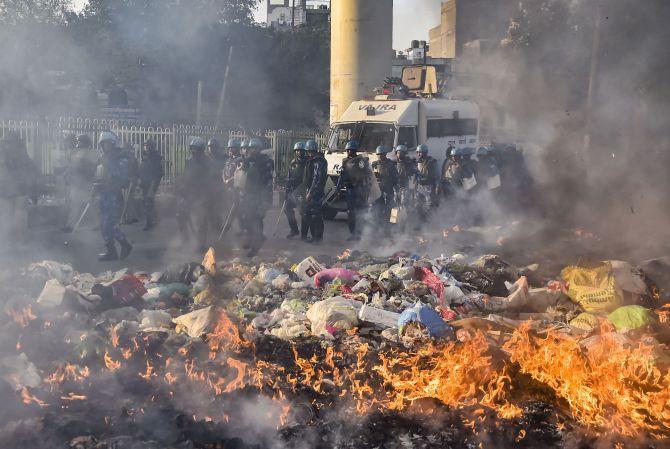Communal rioting cases nearly doubled in 2020: NCRB
September 16, 2021 23:42

Cases of communal or religious rioting in 2020 nearly doubled from 2019 even as the country witnessed "very limited" outdoor activities due to COVID-19 pandemic during the past year, according to latest government data.
In its annual report, the National Crime Records Bureau which functions under the Union Home Ministry, stated that 857 cases of communal or religious rioting were reported in the country in 2020.
In 2019, India had logged 438 such cases across states and Union Territories while the figure was 512 in 2018, it added.
In the report the NRCB stated that the country remained under complete lockdown from March 25, 2020 till May 31, 2020 due to COVID-19 pandemic (first wave), during which the movement in public space was "very limited".
The year 2020 witnessed several protests and demonstrations on citizenship laws and communal riots in northeast Delhi during January and February while the pandemic outbreak started in March.
There were 736 cases of 'caste conflict' in 2020, up from 492 in 2019 and 656 in 2018. Another 167 cases were lodged under the 'sectarian' conflict category in 2020, up from 118 the previous year and down from 209 in 2018, the data showed.
The NCRB report stated that a total of 71,107 cases of 'offences against public tranquillity' were lodged across the country in 2020, an increase of 12.4 per cent over 63,262 such cases in 2019.
As many as 2,188 cases of such offences were lodged under the 'agrarian' category while 1,905 for 'rioting during protests or demonstrations', the data revealed.
Of the total offences against public tranquility recorded under various sections of the Indian Penal Code in 2020, rioting (51,606 cases) accounted for 72.6 per cent of total such cases, the data showed.
"The cases registered under crimes against women, children and senior citizens, theft, burglary, robbery and dacoity have therefore declined, whereas COVID-related enforcement has resulted in increase of cases registered under 'disobedience to order duly promulgated by public servant (Section 188 IPC)', under 'Other IPC Crimes' and under 'Other State Local Acts'," it added in the report. -- PTI





 © 2024 Rediff.com -
© 2024 Rediff.com -